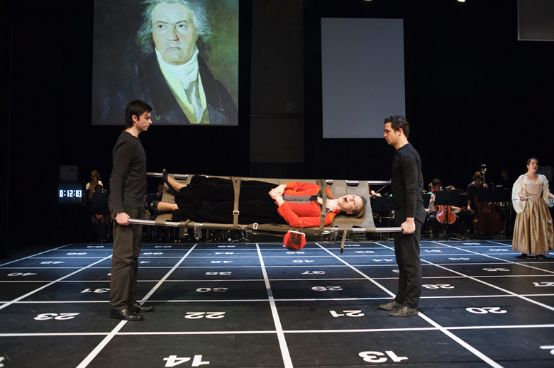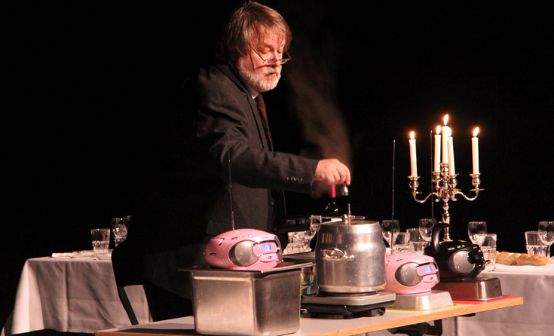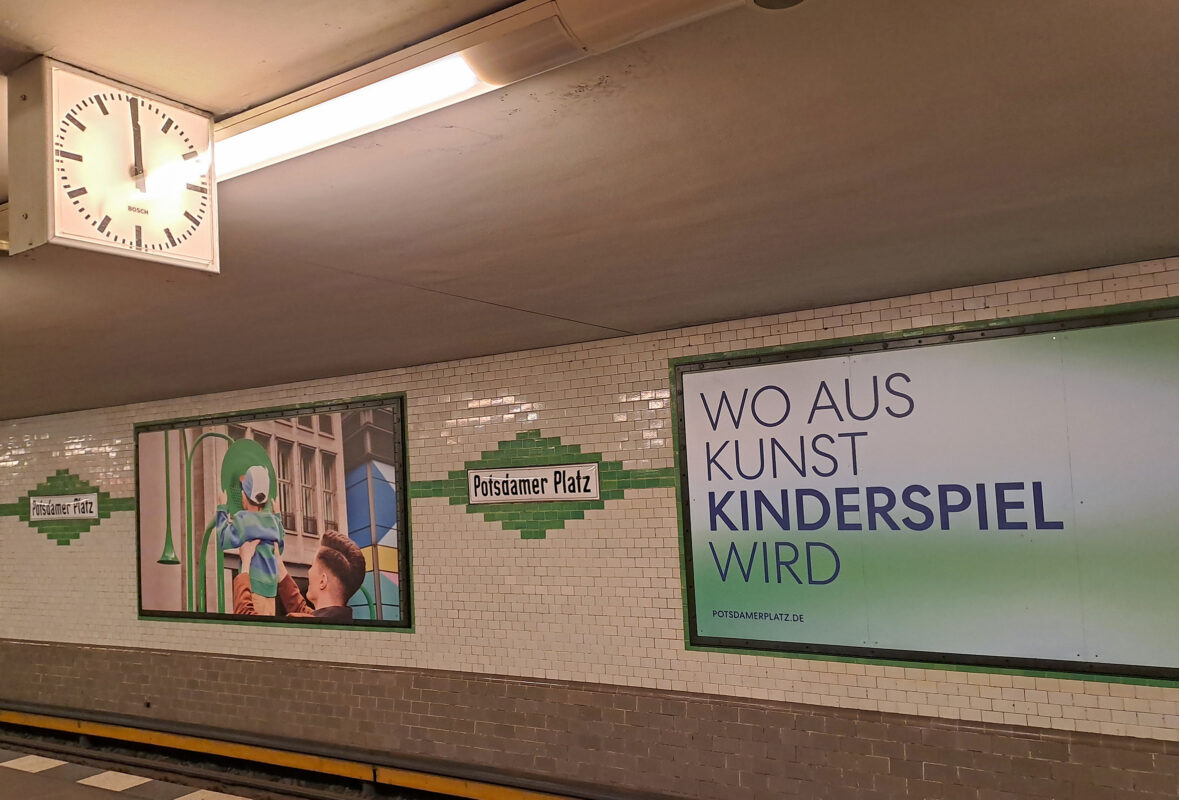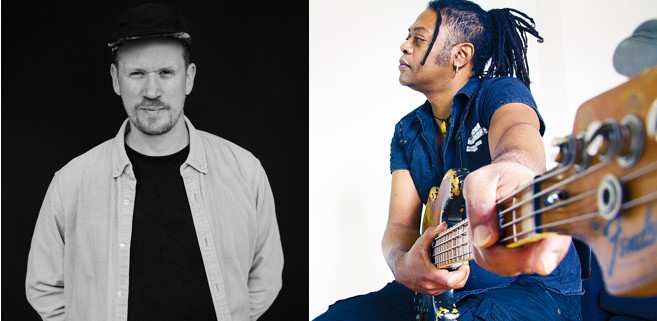The theater with the Muhsiiik!
A symposium at the HKB discussed and presented contemporary "Théâtre Musical" from December 13 to 15.

Why does it have to be a French term? Why has the corresponding Master's program at Bern University of the Arts (HKB) been called "Théâtre Musical" for years? If you simply translate this term into German as "Musiktheater", you miss a nuance. In French, says Roman Brotbeck, who once co-initiated the course as head of the Department of Music in Bern, "Théâtre Musical" is the term for the "instrumental theater" as developed by Mauricio Kagel, Dieter Schnebel and others in Germany; for theatricalized music-making or musicalized theater. The French term is not only preferable because we are on the language border in the Bern region and many students come from French-speaking countries, but also because it includes the vowel. At the HKB, this was essential insofar as the course was long influenced by the Greek-French composer Georges Aperghis: His theater is strongly based on a musicalized language.
Theater um die Muhsiiik was the name of a festival and symposium conceived by Angela Bürger and Peter Kraut, which took place in mid-December at the HKB and the Dampfzentrale. The title of this highly stimulating event already hints at its proximity to language. The possibilities of contemporary "Théâtre Musical" were eagerly presented and discussed over the weekend. The musicologist Jean-François Trubert from the University of Nice explained the compositional innovations of the "Théâtre Musical" in a historical outline. The Berlin philosopher Harry Lehmann, whose theories on cultural theory are currently the subject of heated debate in Germany, developed the concept of "relational music" in contrast to "absolute music", which tends to take up more and more extra-musical materials and content. The Hamburg composer and director Jan Dvorak presented his own music theater projects on the border between classical and pop music. Composer Cathy van Eck presented cross-media pieces from her own oeuvre. And two of the genre's most internationally renowned composers, Manos Tsangaris and Daniel Ott, were also represented; both will take over the direction of the Munich Biennale for New Music Theater from 2016 and will probably refresh the festival somewhat in the process. It became clear that the "Théâtre Musical" already has a long history. And it has its forefathers. Tsangaris reminded the audience that many of the classics by Kagel and Schnebel, as well as Cage and Aperghis, refer to Beckett as a role model - and that it is important to move away from this. An important remark. How the "Théâtre Musical" can escape such constrictions became clear several times this weekend.
Many classics of the "Théâtre Musical" refer to Beckett as a role model -
We need to move away from this.
The situation of contemporary music theater in Switzerland was also discussed. The beautiful productions by the HKB at the Dampfzentrale showed that there is potential for this, at least in terms of training. Under the direction of Pierre Sublet, students staged their own version of Cage's Europera 2 from 1987. In it, it is left to chance how set pieces from European opera history are "composed" anew: Arias, orchestral parts, costumes, backdrops, etc., resulting in a fascinating mix-up that is as amusing as it is perverse. In Bern, the work was cleverly adapted for the needs of the school: dance and speaking parts were integrated; the opera house backdrops were replaced. And an extra quarter of an hour was added at the front, giving the Théâtre musical graduates an additional opportunity to perform. Europera 2 is the shorter and, as it were, condensed version, in which the amount of material from Europera 1 is presented in half the time, namely 45 minutes, which over time results in an acoustic overabundance, a somewhat undifferentiated mush of sound. Probably there should have been a little more nuance here - or would that have contradicted Cage's intentions?
-

- Roman Brotbeck cooks for the "big music-culinary Muhsiiik banquet" © Joachim Koerfer
The fact that a "Théâtre Musical" can unfold a completely different sensuality was demonstrated by the "great musical-culinary muhsiiik banquet". In a variation on Cage's famous Water Walk, Roman Brotbeck and chef Martin Schöni performed a kind of brilliant Cook Walk with surprising variations and a highly convincing result in terms of taste. Finally, the graduates of the course once again had their turn in the interludes to the communal meal. The percussionist Françoise Rivalland, a lecturer at the HKB and, incidentally, an excellent interpreter of Aperghis, had rehearsed these virtuoso linguistic skills, which were wittily close to the border between the intelligible and the nonsensical. Once again, the Bernese "Théâtre Musical's" closeness to Aperghis became palpable; perhaps it would be good to develop further facets. But that belongs to the future of this genre, which is practiced at such a high level in Bern as almost nowhere else.
Picture above: Set pieces from European opera history - John Cage's "Europera 2" © Marco Frauchiger








